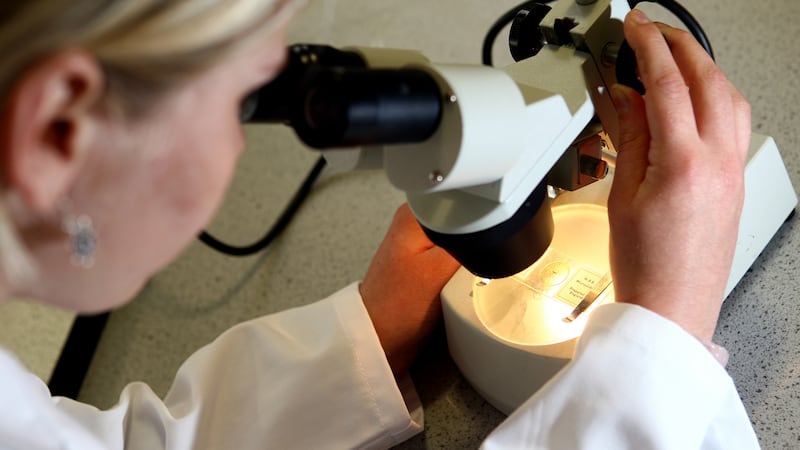STARTLING news from Fermanagh, where a mere 54 per cent of Orange Order brethren believe that Catholics are suspicious of the institution. Wishful thinking, perhaps. But in the unique context of Northern Ireland, this also makes Fermanagh orangemen the sort of dangerous liberals who will have the inhabitants of the Twaddell Avenue caravan dismissing them as freethinking Lundies.
Or maybe not. A separate part of the same survey concerned the views of those who are not in the Orange Order in Fermanagh, of whom 93 per cent believed that Catholics were, in fact, suspicious of the organisation. As only a third of those who took part in this section of the survey were real, actual Catholics, it's not as if it was inherently loaded to get this result.
Rather, it suggests that the Orange Order has as big a job on its hands to explain itself to Protestants as it does to Catholics. And for an organisation that styles itself as the defender of the Protestant faith, that must be a puzzling and uncomfortable place to be.
Credit, then, the leadership of the County Fermanagh Grand Orange Lodge who commissioned the internal and external audit in the first place - an exercise which, as Norman Johnston, the past county grand master, observes in the introduction to the 166 page report, would have been "unthinkable for some".
Just more than 600 orangemen - almost 30 per cent of the county's 2,224 membership - responded to a long and detailed survey, with 161 from beyond the order taking part.
Several themes emerge, some more predictable than others.
There is frustration that the faith-based dimension of the order has been largely lost in the public's perception and that the organisation is often seen as political rather than religious.
The Orange Order in Belfast, which has a smaller membership than Fermanagh, is singled out for criticism as "the tail wagging the dog".
Orange leaders are criticised for not condemning "the louts that riot and give us a bad name".
"No matter how we create good relations in Fermanagh we will always be let down by the hooligans in Belfast who tarnish our reputation."
If Fermanagh orangemen feel the shambles at Twaddell does not represent their tradition, they are also less than thrilled about the bands some lodges march with: "We let ourselves down in areas of the province by engaging sectarian bands to lead the parade." The media gets a kicking too. The Irish News isn't referenced in the report's bibliography, though other daily and weekly newspapers are, but the general thrust of the comments is that the media has a "republican/nationalist agenda".
Evidence to back this up is less than slender and seems to amount to not enough photos
of cheque presentations to charities being published.
As someone who cries inside whenever I see such images in any newspaper, I believe, with possibly a little too much fervour, that these gormless line-ups behind jumbo pieces of cardboard - as if anyone believed they were real cheques in the first place - with everyone looking in different directions should be banned, possibly by an Act of Parliament or an amendment to the European Convention of Human Rights.
If that is the extent of what positive media coverage amounts to, the Orange Order really needs to think again; all the cheque presentations in the world aren't going to offset the image of a Twelfth of July parade getting stuck in to the police in north Belfast. What is positive are the "examples of significant good relations through acts of cooperation, mutual respect and community support" in Fermanagh.
These included a Catholic church allowing its car park and toilets to be used by spectators at a recent Twelfth demonstration, GAA clubs and orange lodges sharing cherry pickers to put up and take down flags and Catholic farmers milking neighbours' cows to allow them to attend parades.
Ten per cent of Fermanagh orangemen said they would attend a GAA match and nearly a fifth think a GAA team should be invited to Twelfth celebrations, though the fact that in places grounds and competitions are named after republican paramilitaries is an enormous obstacle to wider acceptance.
What may ultimately surprise some people from a Catholic, nationalist or republican background about the Fermanagh research is that there is no such thing as a single Orange perspective; the Orange community is not a monolith any more than GAA members or daily Mass-goers or Daniel O'Donnell fans are all the same.
This would certainly surprise the author of a letter published in The Irish News on Tuesday which spoke of how many Protestants are apparently "brought up with an orange/unionist mentality, conditioned from birth to believe that Catholics are their enemies."
That's clearly nonsense, though it does point to a perception that the Orange Order could do much to undermine and correct. The Fermanagh research shows an effort to do just that, not least by identifying how the orangeman sees himself as well as how others see him.
At least he is looking, unlike his brethren in Belfast who don't seem to care what anyone thinks of them, even when it means other Orange Order members think they are a disgrace.
What are the chances of some Fermanagh-style leadership in north Belfast in the weeks and months ahead?


